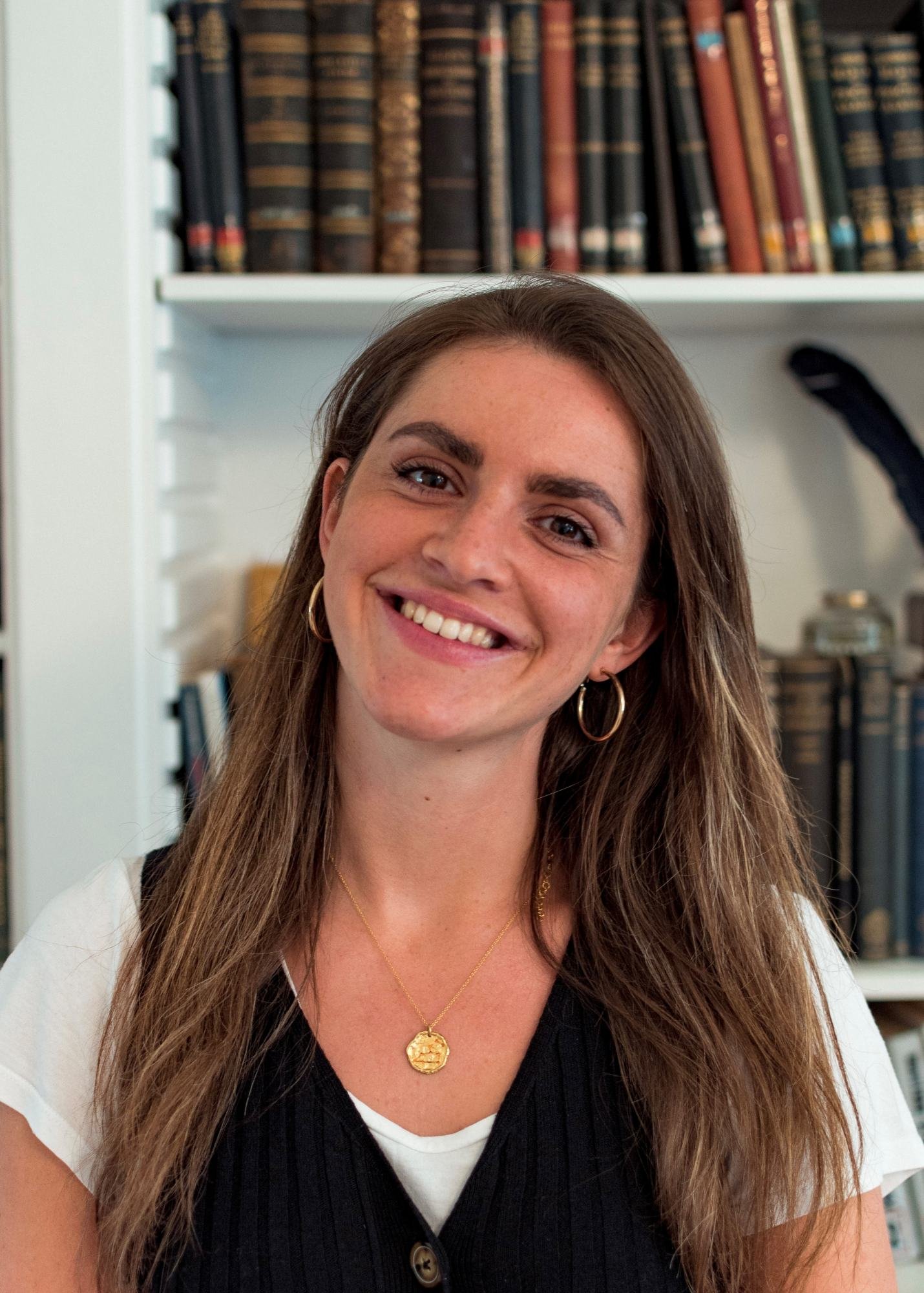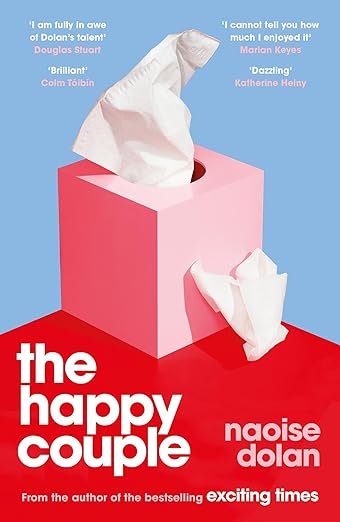A Conversation with Clementine Taylor on Something About Her
This is your debut novel. Congratulations! How did the process begin?
After I finished my undergraduate degree, I was reading more and more and really falling in love with fiction. I’d always enjoyed reading, but for some reason things shifted for me around then. I constantly craved that feeling of escape into another world – it was unlike any other sensation I could grasp. A few years later, I had a real curiosity to see what it would feel like to try and write something myself. I started off attempting to draft a few short stories and loved it - I wrote some completely terrible ones, then eventually some less terrible ones, and then one of them got shortlisted for a prize. That shortlist gave me a bit more confidence in my writing. I’d been thinking about turning one of my earliest short stories into a novel, and that gave me the courage to give it a go. The beginning of that short story is now the first chapter of Something About Her!
Maybe more importantly, how did you know when you’d finished? And how does it feel now that it’s out in the world?
I’m not sure whether I feel any piece of my writing is ever finished; there are always changes that could be made and elements which I know could be improved. But I love that about writing! It’s messy and imperfect and better in some places than it is in others and there’s always the possibility of another word or line or paragraph. I think for me it was about being ready to let it go, and that was to do with the characters feeling fully formed. Even if not everything you know about the characters is written down, for me it’s that sensation that you can sense them radiating off the page and see them in front of you when you write or read.
It feels unbelievable having the book out in the world – it’s cliché, but really is a dream come true. I’m so happy and honoured that people get to meet these two women and hear their story.
I really liked the balance of the two voices in Something About Her. The point of view switches between the protagonists. It reminded me of One Day by David Nicholls, one of my all-time favourite novels. What was the thought process behind this approach?
Oh my gosh, Isobel! Can’t believe it! Couldn’t agree more. One Day is also my favourite book – it is truly a masterpiece. Nothing will ever beat the book for me, but I’ve been waiting for the Netflix adaptation like a child waiting for Christmas (and it comes out tomorrow as I write – very excited). What I love about David Nicholls’ writing is how you see things from both Em and Dex’s perspective. It’s unbelievable how he manages, in the third person, to capture their thoughts so beautifully and to switch between them so seamlessly. I think I wanted that feeling – or close to it – with Something About Her. I wrote it in the first person so that it could feel intimate, so you could have a front row seat to their thoughts, a bit like with Call Me By Your Name. It was also just a great exercise for me in getting to know Maya and Aisling and I grew to love being inside their heads. Writing it felt a bit like falling in love at times – I could find the most exquisite beads of wisdom in them, learn about their past, see their hopes and fears for the future, discover their best side and their worst side. I knew if they were grumpy, when they were hungry or what brand of shampoo they liked. I just grew to feel close to them which was an amazing sensation.
I listened to the audiobook over a couple of days, in which Aisling and Maya are read by two different narrators. This made for an immersive experience. I cared about the characters by the end, almost as if they were people I knew, sending me voice notes, and I wanted them to keep updating me on their lives. What is your relationship with the audiobook, and audiobooks in general?
Thank you so much Isobel – that is amazing to hear. Róisín Rankin and Helena Wilson are truly the most perfect narrators I could have wished for – I am so in awe of how they bring Aisling and Maya (and all the other characters) to life. I’ve listened to the whole audiobook through, and they are extraordinary. It’s special for me to hear because it’s like hearing the voices of people I know; they capture everything I’d hoped for.
I’ve really gotten into audiobooks the last couple of years. I must admit I used to really wave them aside in favour of physical books, but I could not have been more mistaken. It’s so immersive and evocative hearing a narrator embody the characters. I listen to them constantly now and absolutely love them.
Aisling and Maya meet in hilly Edinburgh. Why Edinburgh?
Ah gosh – honestly, I just love Edinburgh. I think it is such a romantic city, and I knew it could capture all the parts of the story. There’s such a mixture of darkness and light in the book, and Edinburgh has such a varied personality. It is ethereal and bright, and yet also eerie and ghostly and dark at times. I felt it captured all the angles of their journey – I hope I’ve begun to do it justice. It’s such a special place.
It’s always tempting to try and draw comparisons between a piece of fiction and the writer behind it. Some people think that we should avoid it at all costs, but context can be useful in understanding a story. How much of this story would you say is inspired by your life?
I think there are always fragments of authors in their stories, whether they’re subtle or more tangible. There are certainly parts of me in this book, and aspects of me in both Aisling and Maya. This book explores things I’ve grappled with, or that I’m still grappling with, and so there were certainly some elements of catharsis. Things like artistic expression, sexuality, friendship, family relationships, dealing with trauma. But having said that, I think that even if it started out that way, it develops into its own story, especially as the characters grow into separate, real people. So, really, it’s not my story – it’s their story now.
Aisling’s relationship with her mother is more than fraught. What influenced your decisions with this character?
Aisling’s mother is awful, and that storyline is horrific. It wasn’t enjoyable to write, and I found it very upsetting to be in her head at those moments. This might sound strange – but I always knew that Aisling had a traumatic childhood from that first short story, and I knew that was a part of her. I was influenced by multiple things with this storyline. Particularly, I wanted to explore trauma and the difficulties of processing it, especially in relation to the people we love. These acts of violence against Aisling also felt symbolic to me of a wider issue we have in society of violence against and towards queer people, and I think it’s important to be confronted with this even if it’s painful to read or hear. At the same time, though, I hope the story gives hope and balances the dark with the light. When we find our people, the people who love us exactly as we are, then everything changes.
I’m interested in the flow state, and writing can be a great way of accessing it. Do you remember any parts of the book which gave you the most joy to write, or which put you in a deep state of focus? Why do you think that was?
This is so true! What a lovely thought. There are parts of the book that I don’t really remember writing and I think that was probably about flow. That middle part of the book when things are really building up with their chemistry and their feelings are bubbling to the surface, that was so much fun to write. I was obsessed. I didn’t want to do anything apart from just be with them, see what was going to happen next or hear how they were feeling. I think it was that investment in what was happening and in the people who I was writing about which gave me that sense of flow.
I actually discovered your book when the author and creativity coach, Amie McNee (@inspiredtowrite), celebrated its release on her Instagram story. She greatly influences the way I think about creativity. In that vein, could you share any creative goals you have? That could be today, this month, or in ten years’ time.
Ahh, I love this! Amie is so inspiring and does such amazing work, and I am absolutely buzzing for her upcoming book! I am constantly in awe of her wisdom and creativity – what an icon! I would really recommend following her to any artist.
I think my biggest goal for my writing going forward is to make sure I keep enjoying it. I think getting published can make it feel like there are pressures or expectations, but I constantly remind myself that this is something which started off as a hobby – something which I love, and which gives me so much joy and pleasure. As long as I keep that I’ll be really, really happy.
And lastly, do you have any advice for writers, on the craft or publishing front, that you wish you’d known earlier?
I think a couple of things: you should be the biggest champion of your work - always believe in it and in yourself. I love a quote from Marlon James on this – he said that, as a writer, you have to believe in yourself, because if you’re a writer, there will be a time when you’re the only one who does. Of course, there will be others who believe in you too, and we’re so lucky to have those people, but I think it’s important to remember to be your biggest champion. Never stop believing in yourself and never stop believing in your work, no matter what. I also think I’d say take your time! There’s no rush – your characters aren’t going anywhere, writing isn’t going anywhere, and the timings will always work out. It’s so important that you go at your pace and create something you feel passionate about.






